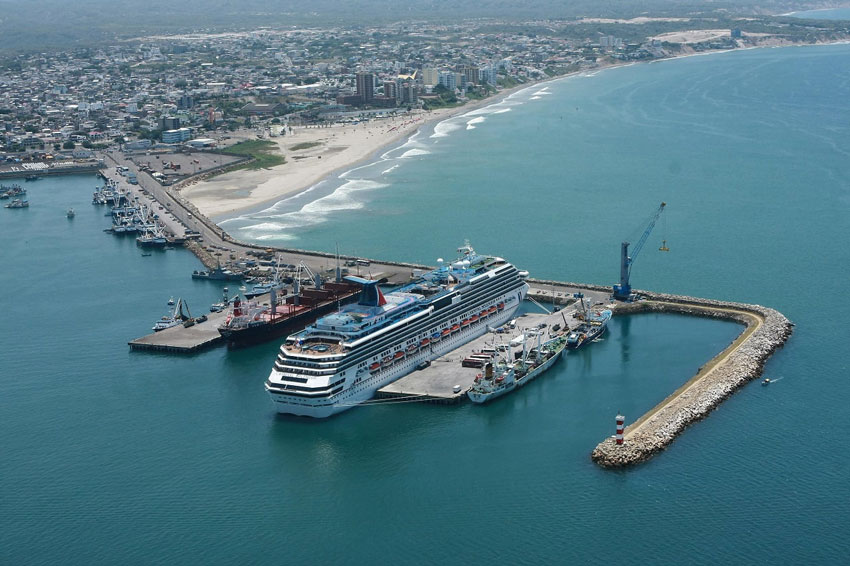Some of these suspensions have coincided with acts of violence such as the murder of the mayor of San Vicente, Brigitte García.
The tourism sector in Manabí has been severely impacted by rising insecurity, leading to significant disruptions including the cancellation of nine cruise ships scheduled to arrive in Manta. These cancellations have caused concern among local stakeholders, especially given that the province typically welcomes numerous visitors via its port.
Roberto Salazar, president of the Manta Port Terminal (TPM), noted that out of the 32 cruise ships initially expected for the season spanning October 2023 to July 2024, only 23 will now make their way to the city. Salazar highlighted that these disruptions are directly linked to concerns over safety, which compel scheduling adjustments and reduce the anticipated number of visiting ships.
Adding to the grim scenario, some of these cancellations coincided with high-profile acts of violence that shook the region. Notably, the murder of Brigitte García, the mayor of San Vicente, on March 24th, and a disturbing incident on March 29th where five individuals were abducted from the tourist-friendly area of Puerto López, have marred the province’s reputation as a safe tourist destination.
These events occurred just as the Easter holiday period was getting underway, traditionally a peak time for local tourism. Unfortunately, the timing of these violent acts coincided with what should have been a bustling holiday week, yet hotel occupancy in Manabí plummeted to a mere 25%, according to the Ministry of Tourism. This was a drastic fall from the previous year, where occupancy was recorded at 42% during the same period.
The downturn was further exacerbated by a hasty exodus of guests from accommodations in areas perceived as unsafe, particularly after rumors circulated that the kidnapped individuals had been taken from a local hotel.
Julián Arévalo, a hotel owner in Puerto López, described the aftermath as “devastating,” noting that the immediate departure of guests resulted in a significantly quieter holiday period, with the expected extended stays of visitors abruptly cut short.
Fanny Condo, zonal coordinator 8 of the Ministry of Tourism, echoed these concerns, stating that the recent incidents had not only affected hotel bookings but had also directly influenced the decision to suspend cruise ship visits.
The repercussions of these events spurred legislative action, leading to the approval of the Law for the Strengthening of Tourism and Promotion of Employment on March 22nd. This legislation aims to bolster the sector by offering tax incentives and simplifying operational processes for tourism businesses. For instance, accommodation providers can now own and operate their transport services for tourists, a shift from the previous requirement to engage external companies. Moreover, the law allows these businesses to deduct losses incurred over the next five years from their taxes, including costs related to enhancing security measures.
Despite these significant challenges, Jaime Ulloa, a tourism leader in Manta, underscored the resilience of the sector. He reported that during the Easter period, occupancy rates in Manta’s five-star hotels reached 60%, while more economical hotels saw a 30% occupancy rate.
While these figures represent a decrease compared to other years, they reflect a segment of the industry that remains determined to recover and thrive despite adverse conditions. Ulloa emphasized that tourism is inherently a resilient activity, capable of rebounding from setbacks caused by external factors such as strikes, severe weather, and episodes of insecurity.


Every time I leave a comment about the safety issues, someone comments that the US is less safe than Ecuador.
I don’t have all of the numbers for all types of crime, but I do know how much Ecuadorians are affected by what is happening there. I also don’t hear about cruise ships canceling their trips to any ports in the US because mayors have been murdered.
All I am looking for is a safe place for my wife and I to retire. I realize there are parts of the US we cannot retire safely in, and where we live now will not be affordable. So, there aren’t many good choices for us. Which is a sad state of affairs for what is claimed to be the “best country” by many.